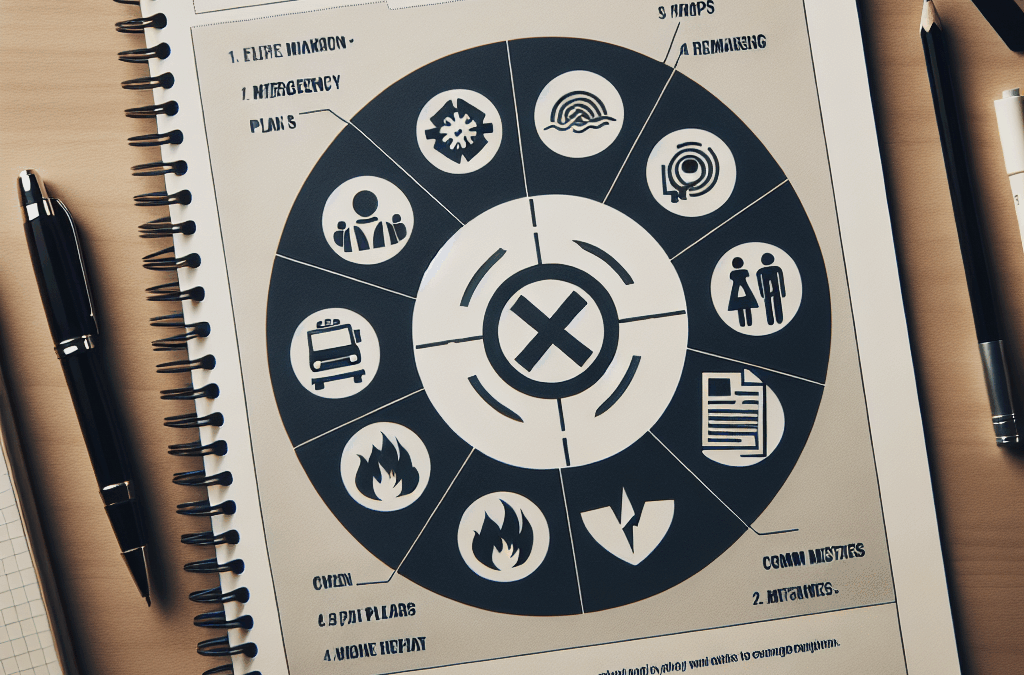When it comes to emergency preparedness, many individuals and families often fall into common traps that can jeopardize their safety during a crisis. While the idea of having an emergency plan may sound simple, the execution requires careful thought and attention. Here are some misconceptions and mistakes you should avoid to ensure your family remains safe when disaster strikes.
One of the first missteps is ignoring the importance of a communication plan. In times of chaos, especially during natural disasters, maintaining contact with loved ones becomes crucial. Yet, many people assume that everyone will simply know where to go or what to do without clear instructions. This isn’t the case! Establishing a designated meeting place, sharing emergency contacts, and utilizing multiple forms of communication—like text messages or social media—can make all the difference if traditional phone lines are down. Be proactive: discuss your plan with family members regularly.
Another prevalent error is neglecting to update your emergency kit. It’s easy to throw together supplies and forget about them until an actual emergency arises. However, this complacency could be detrimental. Over time, food items can expire, batteries lose their charge, and medical supplies may need refreshing. Aim for a seasonal check-in on your kit; include essentials like non-perishable food, water (one gallon per person per day), first-aid materials, flashlights, and necessary medications. Keeping everything fresh not only ensures you have what you need but also fosters peace of mind.
Underestimating the risks associated with natural disasters is another dangerous pitfall. Whether it’s hurricanes in coastal regions or earthquakes in fault-prone areas, each locale has its own unique risks that should not be overlooked. Ignorance can lead to a lack of preparation; therefore, staying informed about potential threats in your area is paramount. Research historical data on local disasters and identify warning signs associated with them—this knowledge will empower you to react quickly when faced with uncertainty.
Equally important is involving all family members in planning discussions and preparations. When only one person takes charge of creating an emergency plan or kit, others may feel uninformed or unprepared when disaster strikes. Encourage open dialogue by holding regular family meetings focused on safety planning; involve children by assigning them small roles such as gathering supplies or practicing evacuation routes together. By fostering teamwork within your household regarding emergencies, you’ll create unity and confidence among all members.
Lastly, don’t overlook local resources and community support systems available during emergencies! Many towns provide helpful services like shelters or local response teams ready to assist residents in crisis situations. Familiarize yourself with these resources ahead of time so that you can take advantage when needed most confidently. Connecting with neighbors through community programs can also foster mutual assistance; after all, it’s easier to weather storms together than alone.
Thank you for reading this post, don't forget to subscribe NOW for FREE!
In conclusion, effective emergency preparedness goes beyond just having a plan—it demands constant evaluation and involvement from everyone involved while recognizing external resources available for support during crises. By avoiding these common mistakes outlined above and embracing proactive strategies instead, you will enhance your family’s ability to stay safe no matter what life throws at you!
Related Content
- The Ultimate Guide to Family Disaster Preparation Strategies for 2025
- How to Prepare for a Natural Disaster: A Step-by-Step Guide
- What to Look For in a Reliable Emergency Radio
- From Panic to Prepared: Building Your Emergency Action Plan
- Building Resilience: The Importance of Disaster Preparedness in Uncertain Times






